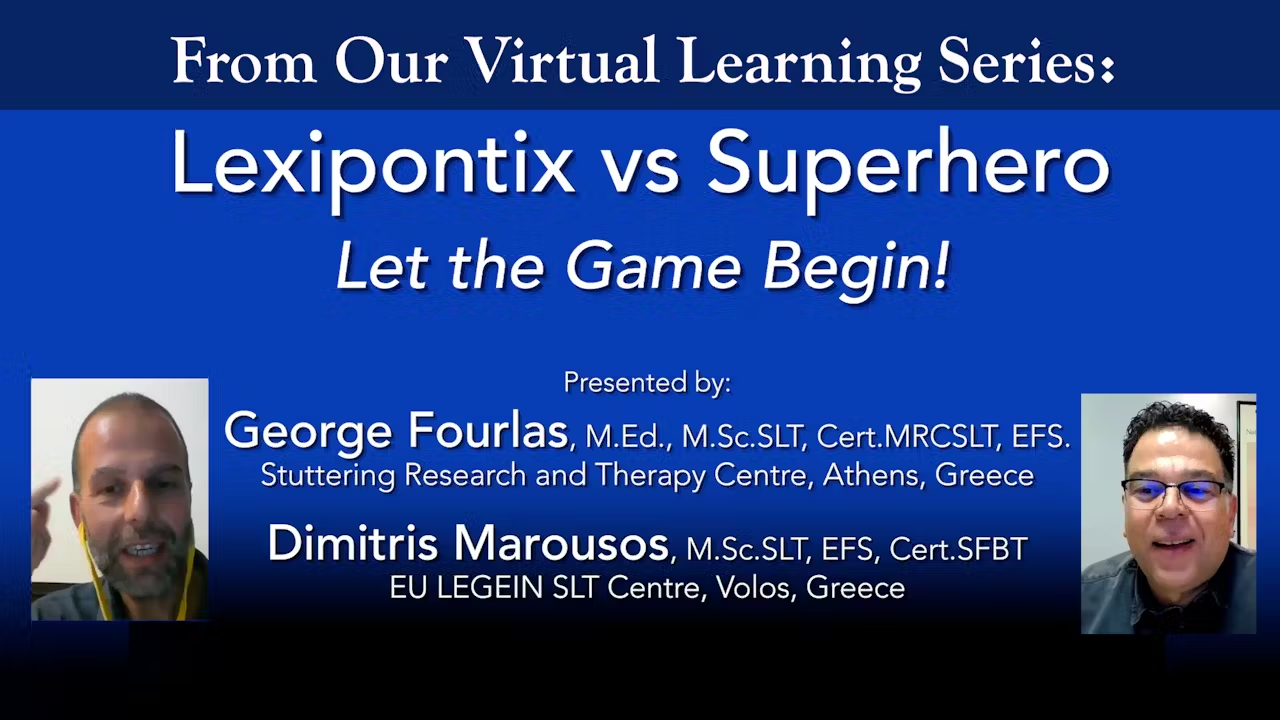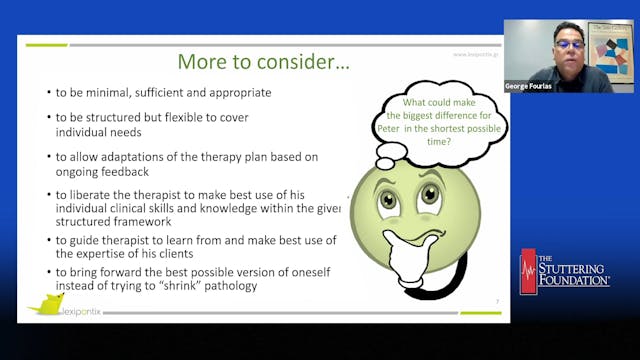Lexipontix vs Superhero: Let the Games Begin!
Lexipontix is a structured therapy program for children who stutter aged 8 to 12 years. The program addresses the overall stuttering experience of the child and family, aimed at “Communication Restructuring” (Fourlas & Marousos, 2014). It uses the ICF model (WHO, 2001) as a clinical framework for assessment and treatment. It is based on the theoretical principles and clinical practices of Cognitive Behavior Therapy, Solution Focused Brief Therapy, Parent-Child Interaction Therapy, Fluency Shaping and Stuttering Modification and integrates those practices in therapy in a child friendly manner. The program lasts for twelve sessions over a period of three months followed by a closing session one month after. Then, progress is monitored by follow up sessions for a period of one year.
Therapy develops as a role game between the mouse called Lexipontix and the child in the role of a Superhero who defends his “Factory of Mind” with the help of the parents and therapist, members of the child’s (therapeutic) “Alliance” (Fourlas & Marousos, 2015). The alliance empowers the child to identify the invasions of Lexipontix in the “Factory of Mind” and to explore the use of “Tools” in order to maintain or regain control over the components of the “Factory of Mind” (i.e. the “Machine of Thoughts”, the “Lab of Emotions,” the “Body Sensors,” and the “Machine of Behaviors and Words”). Parents and child learn and practice with the use of different “Tools” by playing board and card games as well as participating in real life “Experiments” and “Missions.” As a result of therapy, the threatening mouse gradually becomes a companion pet (Fourlas, 2016).
In this workshop, the theme, the structure, and the clinical tools and practices of the program will be discussed in relation to their theoretical underpinnings and clinical rationale. Samples of the manual of the program will be presented for participants to have a taste of the material that is used. Clinical examples on how the program empowers members of the family to make use of their own resources to gain and maintain locus of control and to assimilate clinical tools in a way that produces meaningful changes in their communication and life will be discussed.
Target Audience: Speech-Language Pathologists, Parents of Children who Stutter, Researchers.
Bios:
George Fourlas is a Speech and Language Therapist, Fluency Specialist (EFS), and head of the Stuttering Research and Therapy Centre (ΚΕΘΤ) in Athens, Greece. He is lecturer and coach in the European Clinical Specialization in Fluency (ECSF). He is involved in clinical work, research, teaching and clinical supervision. He is a member of the IALP fluency committee and the Greek SIG in Fluency Disorders.
Dimitris Marousos is a Speech and Language Therapist, Fluency Specialist (EFS), and clinical supervisor of the Speech and Language Centre EU-LEGEIN in Volos, Greece. He is a mentor in the European Clinical Specialization in Fluency (ECSF). He has extensive experience in clinical supervision, and he conducts research in the area of stuttering. He is a member of the IFA Professional Liaison Committee and a member of the Greek SIG in fluency disorders.
-
TSF Webinar-Fourlas-Marousos_Approved Revised

